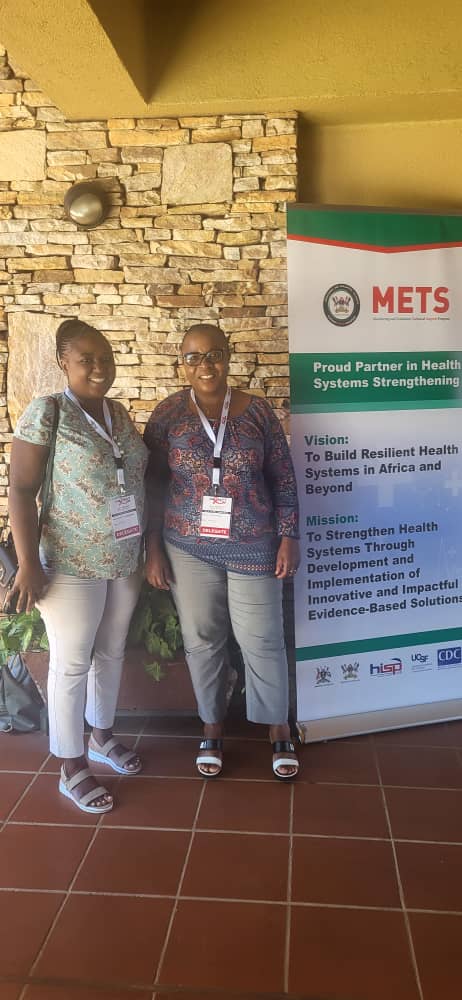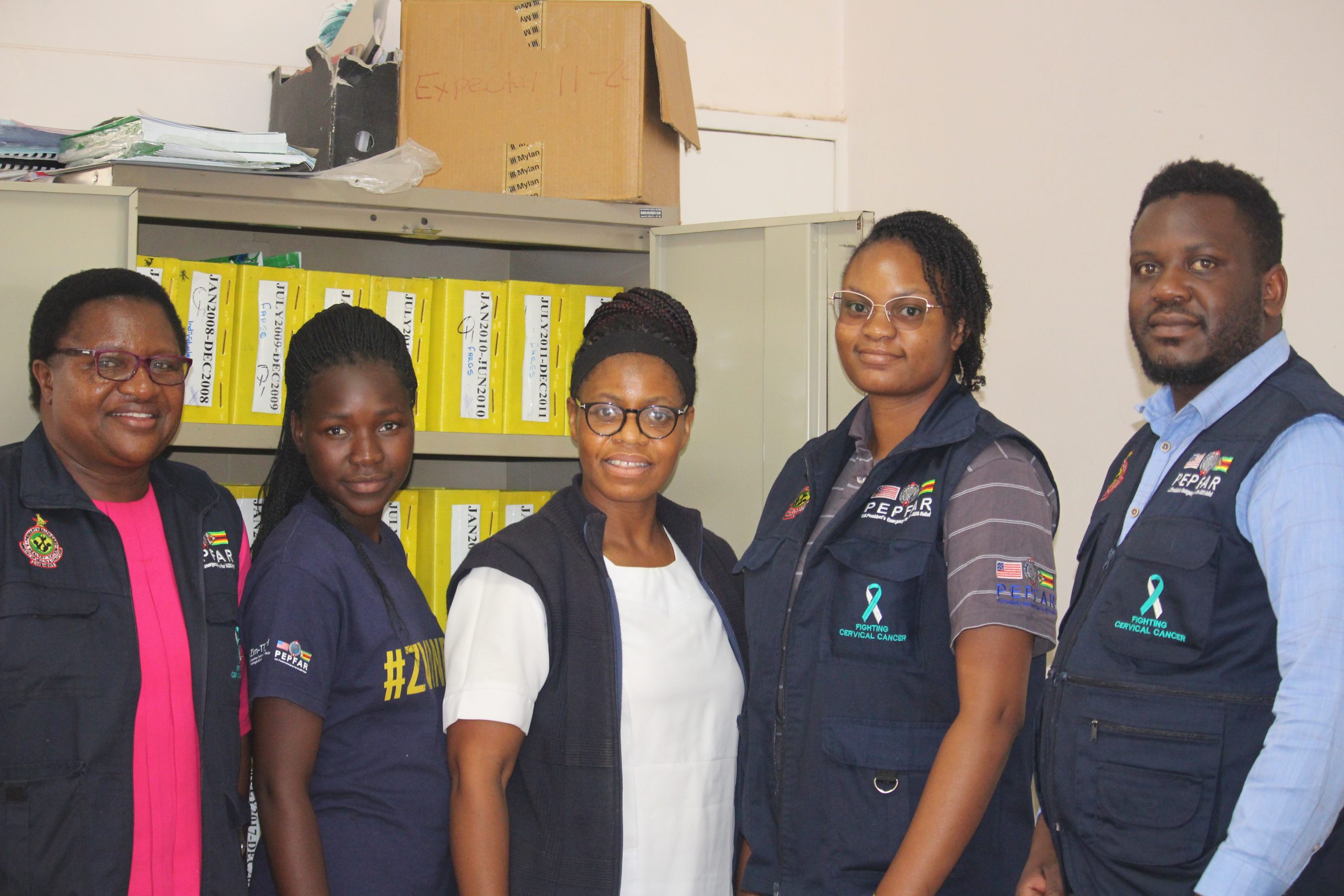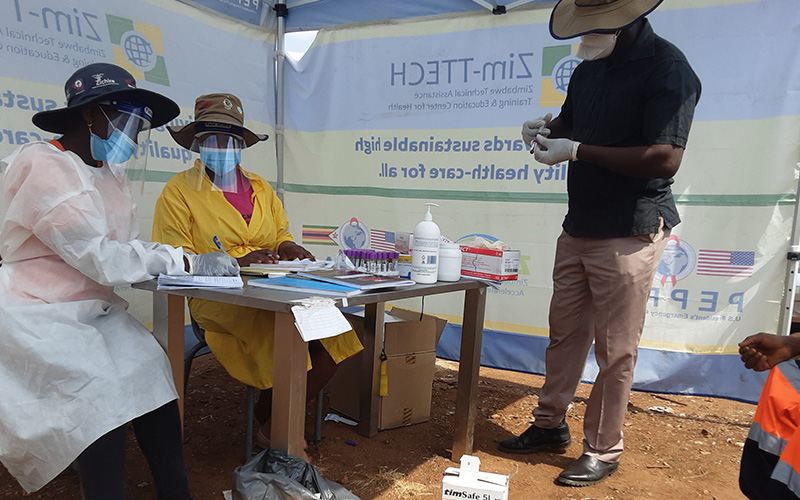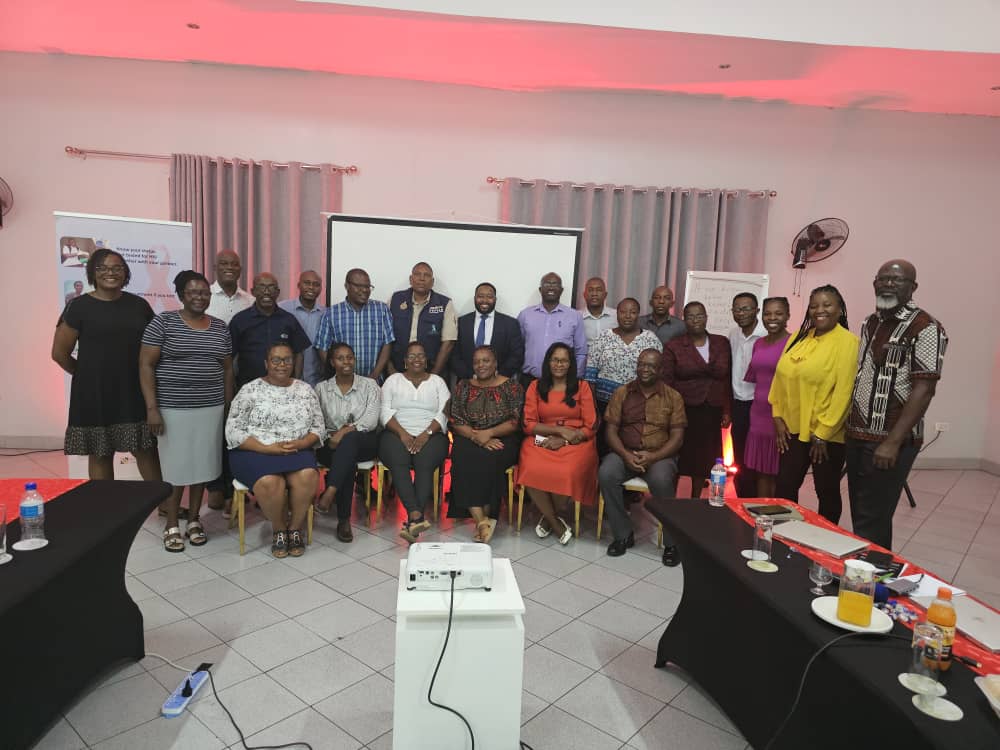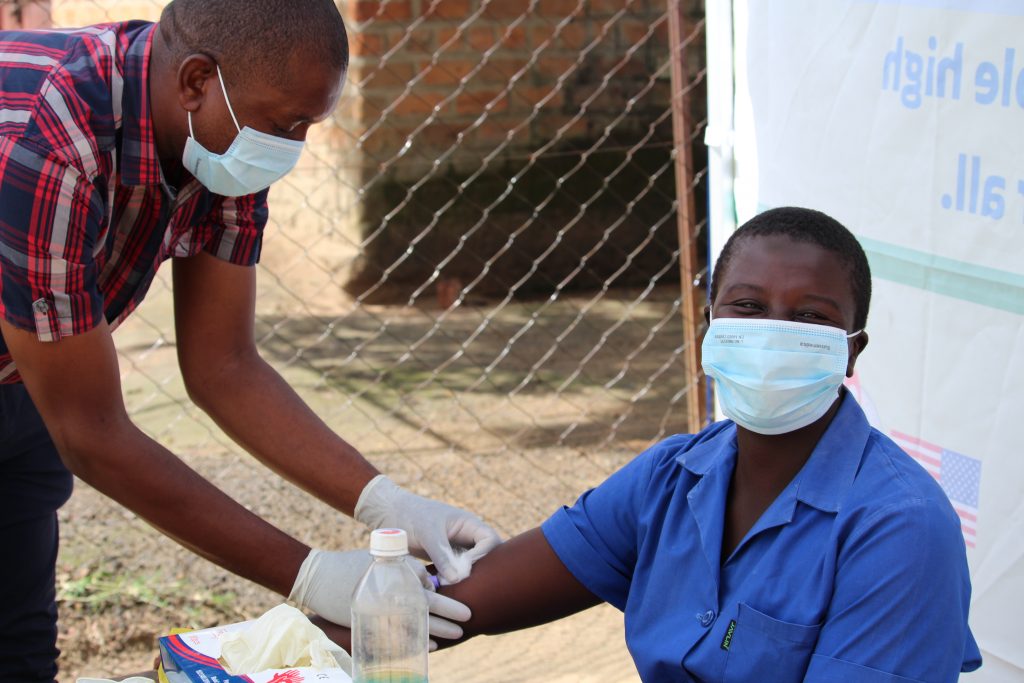
It was on the 5th of September 2017, in the evening, when Lucienne (41years) decided to administer an HIV self-test in the comfort of her home together with her husband. Like all the other days, after hectic farm work, Lucienne was tired and wanted to rest but after visiting her best friend who is the Village health worker who gave her an HIV self-test kit, she wanted to do the test that night and get it over and done with.
“I remember the day and time vividly, the 5th of September 2017, around 8 pm in the evening. 20 minutes later the results came in, and we were all HIV positive. We could not believe it at first. How can a self-test kit show that we were both positive? It could not be,” she said.
After a week of deep thinking and chatting to a close friend who advised her to visit the nearest clinic, Lucienne decided to do another test at the local Nyameni clinic in Marondera,
“My husband tagged along, though he was skeptical about it, we were both scared, but we had to be certain and sure of our HIV status. The results came and we were all HIV positive. That is when reality sunk in. We were so angry with each other at that moment,” she said.
“We were quickly initiated on ART. Back home, our Village Health worker who is also a friend stood with us and assisted us with all the information we needed, we forgave each other and started to live positively,” said ever-smiling Lucienne.
Lucienne and her husband are well known at Sambok farm as they live an open life, they do not hide that they are living with HIV and take their medication openly.
“I am not ashamed of my status, my children know our status, and taking our medication is a family business, my children remind us every day of the need to take our medication religiously,”
“Being HIV Positive is not the end of the world. One can live a healthy and normal life if they adhere to taking their medication as prescribed,” she said.
Zim-TTECH, under the Zimbabwe Partnership, to Accelerate AIDS control consortium, strives to reach hard-to-reach communities through Community outreach approaches where clinical services are provided to the community. Services such as Viral Load sample collection, HIV testing, Cervical cancer screening, ART Refill, Condom Distribution, and PrEP initiation and uptake are provided during the outreach.
Lucienne gets her Viral load sample collected, ART Refill, and Cervical cancer screening services all at once.
